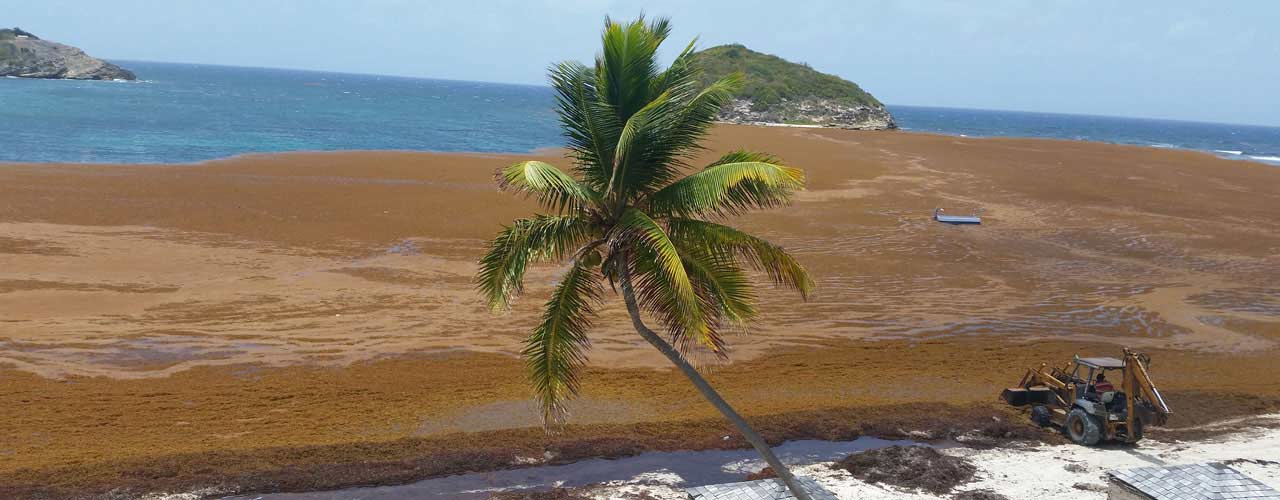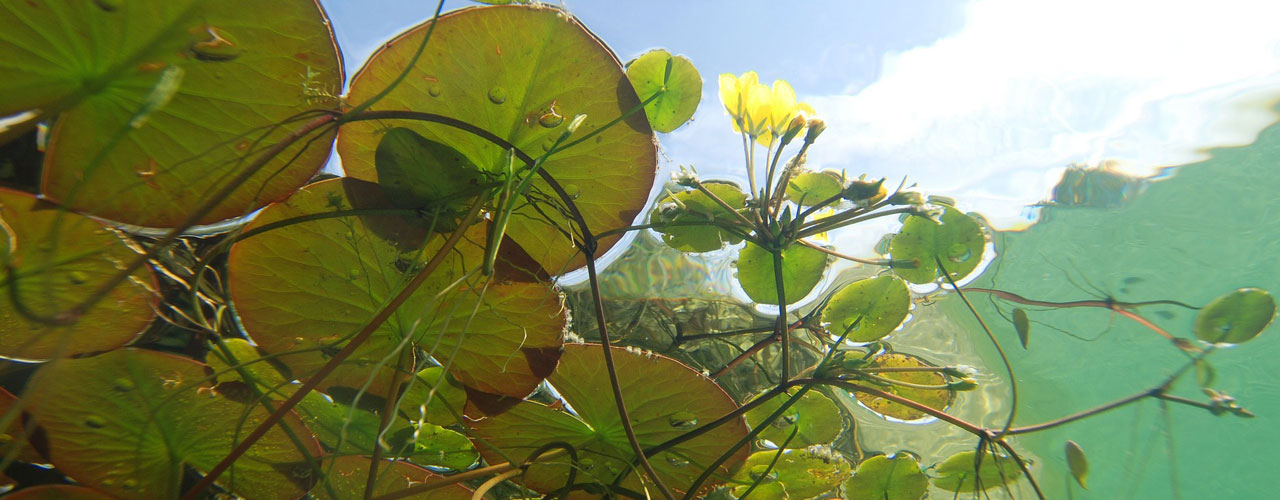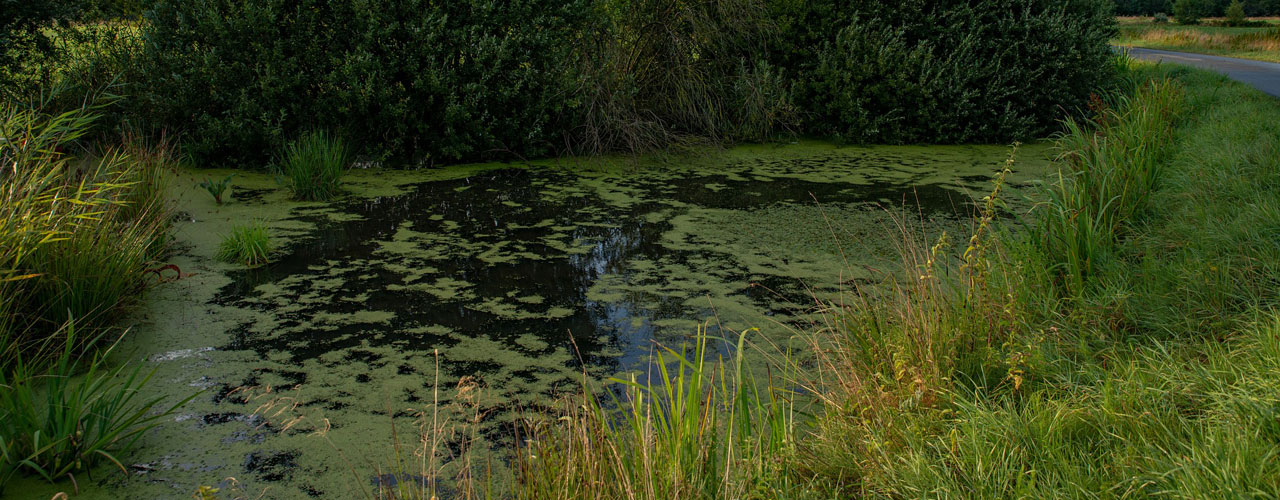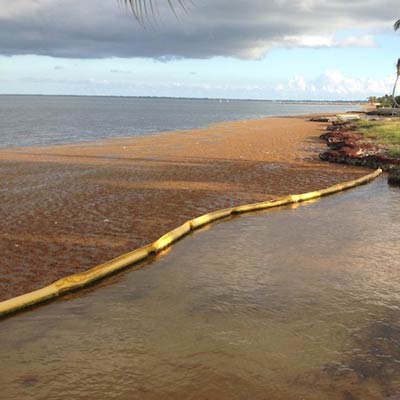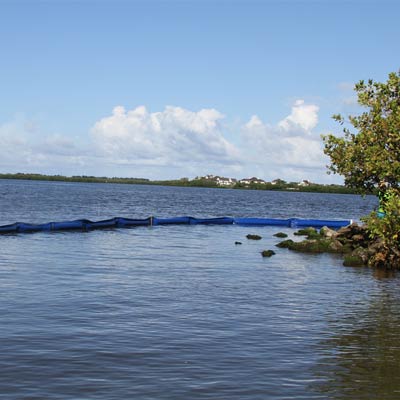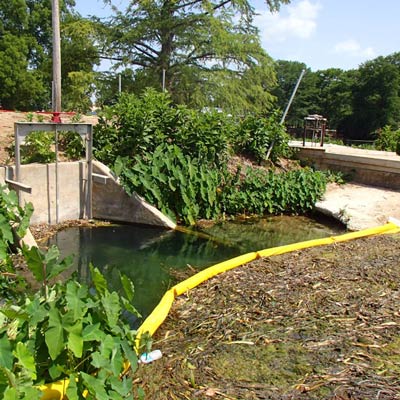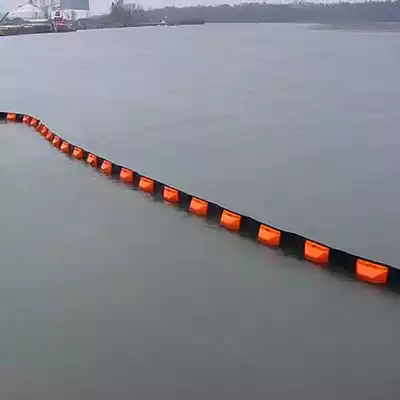For floating aquatic plants and invasive species
Aquatic weed control protects lakes, ponds, rivers, and coastal areas from invasive floating aquatic plants and submerged weeds. Using containment boom barriers, you can control and remove fast-growing species such as seaweed, sargassum, duckweed, and water hyacinth. Without aquatic weed control, these invasive plants deplete oxygen levels, disrupt ecosystems, and harm native aquatic life.
As mats of invasive aquatic plants degrade, they sink, creating turbid water conditions. This murky environment blocks sunlight, limits photosynthesis, and disrupts aquatic ecosystems.
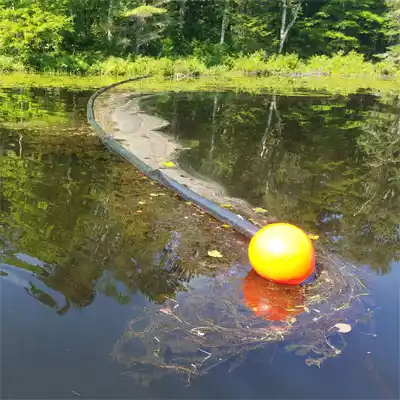
Invasive Aquatic Weed Types:
- Floating aquatic plants: Seaweed, sargassum, duckweed, water lettuce
- Submerged aquatic plants: Milfoil, clasping-leaf pondweed, sago pondweed
- Emergent aquatic plants: Cattail, watershield, purple loosestrife
Aquatic Weed Control Boom Barriers:
- Calm Water Debris Boom
- Moving Water Debris Boom
- Fast Water Debris Boom
- Permanent Debris Boom
Tired of seaweed and sargassum cluttering your shoreline? Our aquatic weed control solutions stop the spread of invasive aquatic plants and improve water quality. Contact Us today or call 1-863-261-8388 to discuss the right aquatic plant control system for your site. or Call us for more information at.
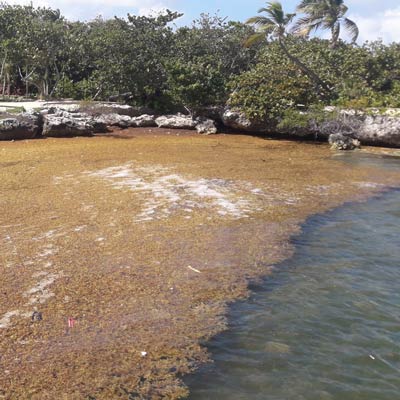
Types of Invasive Water Plants: Floating, Submerged, and Emergent
Floating aquatic plants include:
- Algae
- Duckweed
- Watermeal
- Water Hyacinth
- Water Lettuce
- Seaweed and Sargassum
These plants that float on water's surface are usually free floating, making it difficult for swimmers and other water activities, requiring some form of aquatic weed control in ponds. 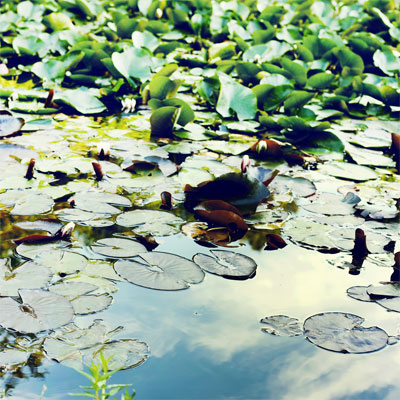
Submerged invasive water plants include:
- Milfoil
- Hydrillia
- Curly-Leaf Pondweed
- Clasping-Leaf Pondweed
- Naiad
- Sago Pondweed
Submerged aquatic plants grow beneath the water’s surface, reducing oxygen levels and blocking sunlight, which disrupts aquatic ecosystems.
Types of emergent invasive water plants include:
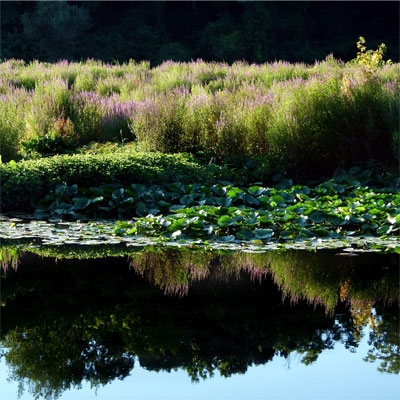
- Cattail
- Water Lily
- Watershield
- Phragmites
- Purple Loosestrife
- Bulrush
Controlling Invasive Aquatic Plants
Aquatic weed control strategies vary based on water conditions. Marine and coastal sites often face seaweed and sargassum invasions. These floating aquatic plants can foul beaches and shoreline environments when they rot. Heavy-duty aquatic weed control booms are essential for controlling these plants in moving and tidal waters.
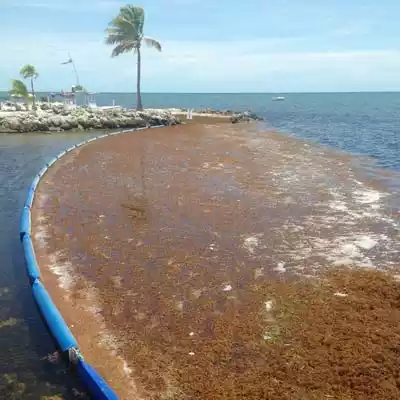
Invasive aquatic plants in Florida’s freshwater lakes and ponds include water lettuce, water hyacinth, watermeal, and duckweed. Calm water environments can often be managed with temporary aquatic weed control booms.
Aquatic weed control for seaweed and sargassum requires robust floating seaweed barrier designed to contain and deflect large surface mats. Without control, these plants can wash ashore, damage beaches, or decompose and increase water turbidity.
Containing invasive aquatic plants for efficient removal and disposal requires reliable, long-term aquatic weed control systems.
Aquatic Weeds and Their Control Over Water Bodies
Why You Need a Floating Seaweed Barrier
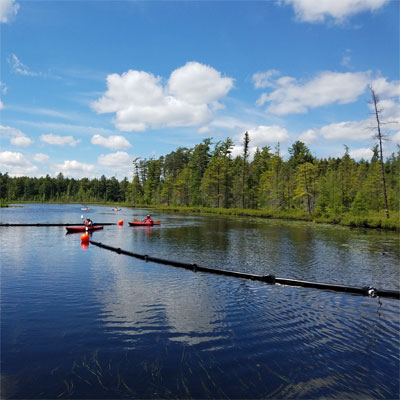
A floating seaweed barrier provides targeted aquatic weed control by containing, deflecting, or excluding invasive plants such as seaweed, sargassum, and other floating aquatic species. Available in calm, moving, or fast-water designs, these barriers help protect waterfronts, beaches, marinas, and lakes from invasive plant impacts.
Durable aquatic weed control booms are mildew- and UV-resistant for long-term use. Whether you need temporary or permanent aquatic weed control in Florida or other regions, our containment boom systems deliver proven results.
Protect your waterbody from invasive aquatic plants with our proven aquatic weed control systems. Call 1-863-261-8388 or Contact Us to speak with an expert and find the right floating aquatic plant containment solution for your site.
Boom type comparison table
| Boom Type | Water Conditions | Key Applications | Durability Features |
|---|---|---|---|
| Calm water debris boom | Lakes, ponds, canals | Temporary containment of floating aquatic plants | Lightweight, portable, easy to deploy |
| Moving water debris boom | Rivers, marinas | Seaweed, duckweed control in tidal or flowing waters | Flexible, reinforced materials, stable in flow |
| Fast water debris boom | Streams, flood zones | High-velocity water containment for invasive plants | Heavy-duty construction, anchoring required |
| Permanent debris boom | Harbors, coastal sites | Long-term exclusion of seaweed, sargassum, water hyacinth | UV-resistant, mildew-resistant, marine-grade materials |
Application use cases for aquatic weed control
Lakefront property management
Contain floating aquatic weeds such as duckweed and watermeal using calm water debris booms to maintain aesthetic and ecological balance in private lakes and golf course ponds.
Beachfront hotels and resorts
Install permanent aquatic weed control booms to intercept sargassum and seaweed before it reaches shore, keeping beaches clean and improving guest experience.
Marina and harbor protection
Deploy moving water debris booms to control invasive seaweed and algae mats around boat docks and marina slips, preventing fouling of vessels and infrastructure.
Municipal stormwater systems
Use fast water debris booms in stormwater channels to control invasive plants and floating debris, helping municipalities manage stormwater flow and water quality.

Frequently asked questions about aquatic weed control
What are the most common invasive aquatic plants?
Common invasive aquatic plants include floating species like seaweed, sargassum, duckweed, and water hyacinth; submerged plants such as milfoil and sago pondweed; and emergent species like cattails and purple loosestrife.
How does an aquatic weed control boom work?
An aquatic weed control boom acts as a floating barrier that contains, deflects, or excludes invasive plants. Booms prevent plant mats from spreading into sensitive areas and allow for easier collection and removal.
What type of boom should I use for fast-moving water?
For fast-moving water such as streams or flood channels, a fast water debris boom with reinforced construction and secure anchoring is recommended to maintain control of invasive plants under high-velocity flow conditions.
Do I need permanent or temporary aquatic weed control?
Permanent aquatic weed control is ideal for areas with ongoing plant invasions, such as coastal properties affected by seasonal sargassum. Temporary booms are suited for short-term containment or seasonal maintenance of lakes and ponds.

